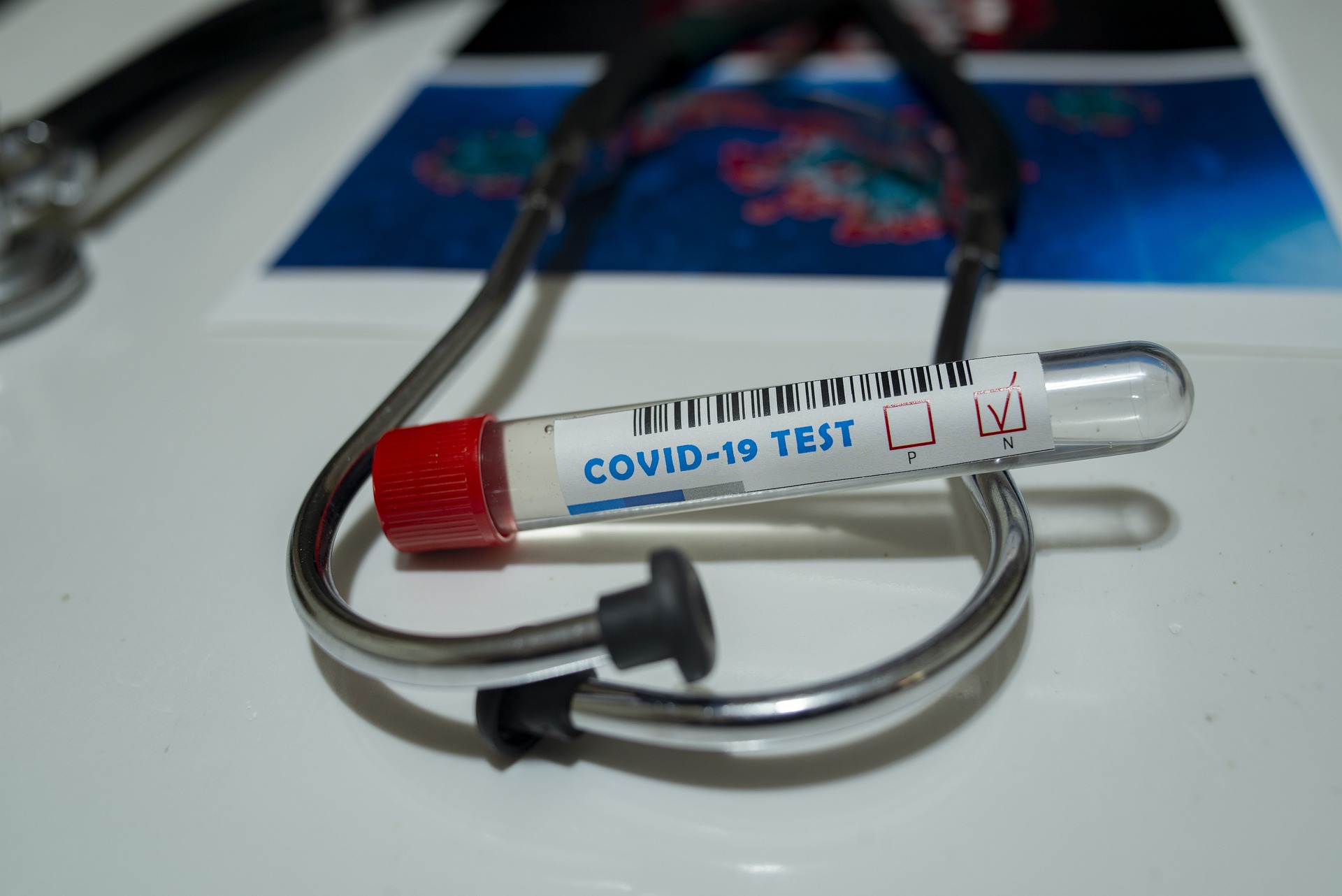Karen Kinsell is the only doctor in southwest Georgia’s Clay County. A third of her patients are uninsured.
“People really have a hard time understanding the extent and pervasiveness of poverty here, and that’s the general area,” she said.
It’s also an area with Georgia’s highest per capita and highest death rate for COVID-19.
More than 35% of the population here is living in poverty, and Kinsell sees many patients with preexisting conditions known to complicate recovery from COVID-19.
“People have very high rates of diabetes and hypertension that are poorly controlled,” Kinsell said.
She treats the uninsured for a fee of $10.
Kinsell has appeared with Georgia Democrats on recent Zoom press calls, requesting that the state finally expand Medicaid. Georgia is one of 14 states still holding out on the Obamacare program.
“The coronavirus has shown us just how much we care about our democratic values, like affordable health care,” said Georgia’s Democratic Chairwoman Nikema Williams during the recent press call.
Williams, a state senator, has recovered from COVID-19.
“Suffering from this disease has made me stronger, and I know that Georgia Democrats are ready to hold our leaders accountable for every way they’ve made this crisis worse,” she said.
This determination should worry Georgia Republicans, says University of Georgia political scientist Charles Bullock because Medicaid expansion was an issue that helped Democrats grow their numbers in 2018.
“And now with the experience of the coronavirus, it’s bound to get some more supporters,” he said.
Democrats, he said, could pick up some seats in rural Georgia this November on the issue of health care.
To expand Medicaid, the state would need to pick up 10% of the cost, 90% would come from the federal government.
The Georgia Budget and Policy Institute estimates that 10% would be between $100 million and $200 million for Georgia.
Republican Gov. Brian Kemp said the state can’t afford it.
“I would disagree with the whole Medicaid expansion argument because there’s a state match for that, so the state would have to come up with a tremendous amount of money to be able to do that.”
He called it a ridiculous argument.
“If the Democrats want to start proposing tax increases when we’re seeing one of the worst economies we’ve ever seen in our state, I would love to see those proposals,” he said.
Georgia, like other states, is facing steep budget cuts because of COVID-19. State agencies have been asked to cut an additional 14% for the next fiscal year, which begins July 1.
But supporters argue the investment into Medicaid expansion would bring in $3 billion a year in federal money Georgia desperately needs right now to keep a struggling rural health care system afloat.
Laura Harker, a health policy analyst with the Georgia Budget and Policy Institute, says about 20% of Georgia adults are uninsured and the state’s refusal to expand Medicaid has left the state without a safety net that is straining rural hospitals.
“If they are seeing a lot of patients without insurance, they are not guaranteed any payment for that. So there’s a lot of charity care options that had to pop up,” she said.
The coronavirus pandemic is widening the holes in Georgia’s health care safety net, with 25 of the state’s rural hospitals just having enough cash for 30 days of operating expenses, says Monty Veazey with the Georgia Alliance of Community Hospitals.
“It’s going to be tough for any rural hospital to get through without help from the government,” he said.
Some hospitals have received federal emergency funding for COVID-19 from the Department of Health and Human Services, but Veazey said it’s not enough for the long haul.
The current business model for rural hospitals may not be sustainable without Medicaid expansion, even after the COVID-19 crisis, according to Bill Custer, who teaches health administration at Georgia State University.
“When you think about a fragile hospital, if they see the uninsured, it’s a death knell for them. With Medicaid expansion, it’s not a moneymaker, but at least a cost break-even point so that they are willing to see those people and have the resources to see those people,” Custer said.
GBPI estimates show Georgia’s health care system has forgone $21 billion in federal dollars so far by not expanding Medicaid.
For Dr. Karen Kinsell, it’s hard to understand why the state has left that much money on the table over the years, especially since Georgia has the third-highest rate of uninsured residents in the country.
“If the feds came and offered to pay 90% of the cost for a highway in Atlanta, do you think it would be built? Yes!
This story was produced in part with funding from the Ravitch Fiscal Reporting Program at the Newmark Graduate School of Journalism at CUNY and is part of a nationwide project on how state safety nets are handling the coronavirus economic fallout.









